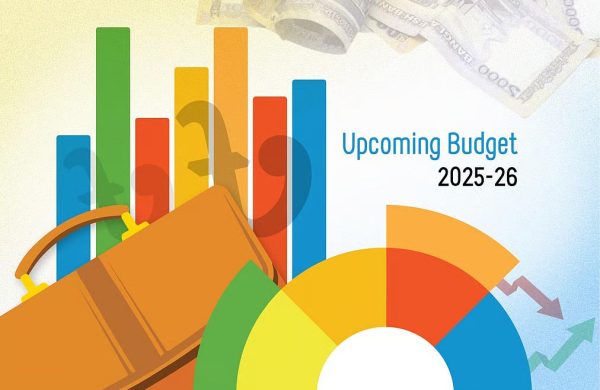Budget 2025-26: Govt to borrow less from banking sector
- Update Time : Tuesday, May 13, 2025

TDS Desk:
In order to meet the budget deficit, the government plans to borrow less from the banking system in the upcoming fiscal year 2025–26. In the current fiscal year 2024–25, the government’s borrowing target was about Tk 2.51 trillion—roughly one-third of the total budget. That target will remain unchanged in the next fiscal year.
The size of the upcoming budget may be Tk 7.9 trillion. From this, the borrowing requirement is expected to fall below Tk 2.5 trillion. The loans will be sourced both domestically and from abroad. This information has been provided by the Finance Division of the Ministry of Finance, which is mainly responsible for preparing the budget.
The target for covering the budget deficit is usually around 5 per cent of gross domestic product (GDP) each fiscal year. Sometimes the deficit slightly exceeds or falls below this threshold.
However, sources in the Finance Division have indicated that the deficit may be fixed at 4.2 per cent of GDP in the next fiscal year. Most of the loans to meet this deficit will still come from the domestic banking system.
In the current fiscal year, of the total borrowing target of Tk 2.51 trillion, the net foreign debt target is Tk 907 billion, while the domestic borrowing target is around Tk 1.61 trillion. Of this domestic amount, Tk 1.37 trillion is expected to come from the banking system. The remaining amount is planned to be raised through savings certificates and other sources.
Although the current year’s target for savings certificate sales is Tk 150 billion, reports suggest this will be raised to Tk 200 billion next year. Meanwhile, the net foreign borrowing target will be slightly increased to Tk 1.1 trillion. The remaining Tk 1.3 to 1.4 trillion will be sourced domestically, with borrowing from banks capped at Tk 1.2 trillion.
According to the Finance Division, as of June last year, Bangladesh’s total domestic and foreign debt stood at Tk 18.32 trillion (Tk 18,32,282 crore). Of this, domestic debt had risen to Tk 10.20 trillion (Tk 10,20,205 crore), up from Tk 7.23 trillion (Tk 7,23,939 crore) as of June 2021. Foreign debt had climbed to Tk 8.12 trillion (Tk 8,12,777 crore), nearly doubling from Tk 4.2 trillion (Tk 4,20,357 crore) four years ago.
Because of this high level of domestic and foreign borrowing, a large allocation will be needed for interest payments in the next budget. More than Tk 1 trillion is being allocated for interest payments, the majority of which will be for domestic debt.
Former Finance Secretary Mahbub Ahmed told journalist “Our main problem is revenue collection. If revenue collection had improved, the government would not have had to borrow so much. I think the government will not borrow heavily from the banking sector in the next fiscal year; instead, it will raise significant funds from the net sale of savings certificates. Since January, the profit rate of savings certificates has increased, which is encouraging people to invest more in them.”
BANK LOAN TARGETS ARE REASON FOR RELIEF
The government borrows from the banking system in two ways to meet its budget deficit—either from commercial banks or from the central bank. Borrowing more from commercial banks reduces their ability to lend to the private sector. On the other hand, excessive borrowing from the central bank fuels inflation, increasing the financial burden on ordinary people. This is a basic principle of economic policy.
According to the Bangladesh Bureau of Statistics (BBS), the country’s overall inflation rate stood at 9.17 per cent in April. Officials in the Finance Division acknowledge that while bank borrowing is one of the contributors to rising inflation, the government has limited alternatives.
The silver lining, however, is that the government typically does not borrow the full amount set as the annual target from the banking system.
For example, although the target for bank borrowing in the current fiscal year was Tk 1.37 trillion, the revised budget has reduced it to Tk 990 billion. In the first eight months of the fiscal year, the government has borrowed only 17 per cent of this target from banks.
Dr. Mustafizur Rahman, distinguished fellow at the Center for Policy Dialogue (CPD), that excessive government borrowing from the banking system adversely affects the growth of private sector credit. Moreover, a large portion of public revenue must be spent on interest payments for these loans. He stressed that the government should be cautious about these issues in the next fiscal year.
He added that if the upcoming budget is kept within Tk 7.9 trillion, it will be relatively small given the current rate of inflation. The primary focus should be on enhancing revenue collection.
“Due to having one of the lowest revenue-to-GDP ratios in the world, the government is forced to depend heavily on bank borrowing to meet its urgent expenditures,” Rahman said. “As a result, it struggles to make adequate allocations to crucial sectors such as education, healthcare, and social protection.”


















